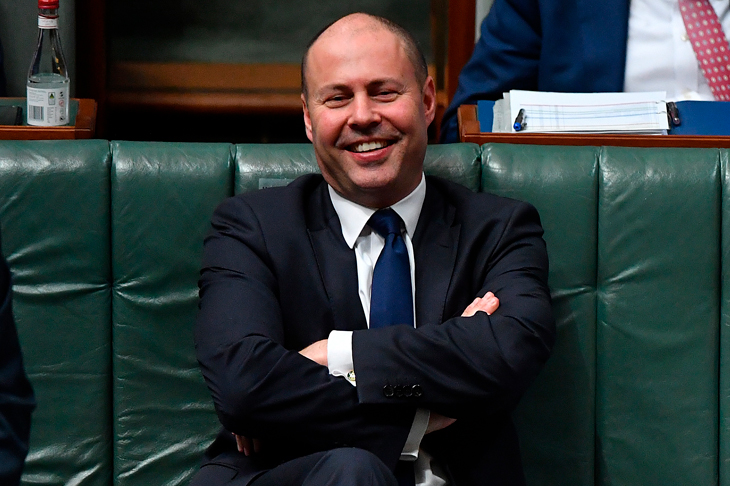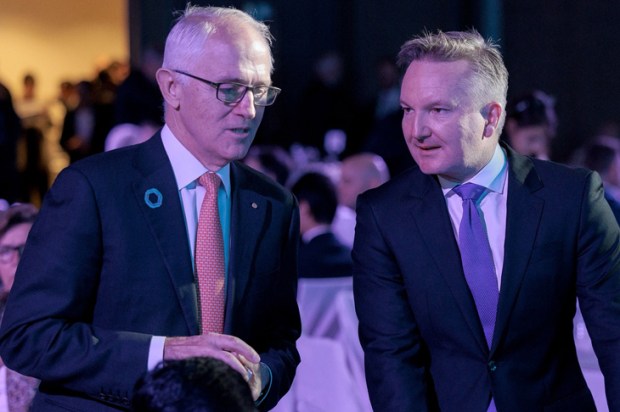It was a terrific heading in the Wall Street Journal: ‘The Humbling of the Fed’. It was such a terrific heading that I have stolen it to make some similar points about our central bank, the Reserve Bank of Australia.
But before I go through some of the fundamental mistakes made by the central banks of Australia and the US (and others), let me go through some of the wonky and hyper-partisan commentary of Nobel Prize laureate, Paul Krugman in the New York Times.
Krugman suffers badly from what we call in Australia the Burnet Effect. Sir Macfarlane Burnet was a distinguished virologist who won the Nobel Prize in Physiology or Medicine in 1960.
But just because he was an eminent scientist in his field didn’t mean that his opinions in other fields were either well-informed or made any sense. But this didn’t stop him from venturing well away from virology. He became a nutty anti-nuclear campaigner and even decided that the quest to cure cancer was pointless and should be abandoned. He claimed before his death in 1985 that scientific progress was about to grind to a halt.
Krugman has many similarities with Burnet. He had an illustrious academic career, mainly at Princeton University, and undertook some truly path-breaking research on international trade flows. But he decided to turn his back on academia and spends most of his time as cheer-leader for the Democrats in the US, particularly on the pages of the NYT.
Last year, he became (slightly) worried about the emerging signs of inflationary pressures in the US but went to great lengths to claim that any inflation pressures were only temporary, the result of supply side problems associated with Covid-19. Mind you, he was hardly Robinson Crusoe in declaring that the clearly rising rate of inflation was almost entirely due to temporary factors. The Fed was singing the same song.
The trouble with temporary is that it’s temporary until it’s not. Earlier this year, only the blind could ignore the rise in inflation that was hitting the US but Krugman had a new take. He was no longer denying inflation was a problem; it was just that people were overreacting and ignoring the good news about the economy.
He even claimed in January that ‘the vehemence of the inflation rhetoric has been wildly disproportionate to the actual risks’. Note here that the most recent figures on inflation in the US put the rate of increase higher than it’s been for 40 years, with producer prices rising even faster than consumer prices. Further hikes in the inflation rate are inevitable.
Now Krugman is a stout defender of the central bank in the US, the Fed. Similarly, there are ardent supporters of our Reserve Bank here. But there are some very strong arguments that the policies chosen by these central banks have been flawed for some time and partly responsible for the economic pickle in which we find ourselves – a pickle that could get much worse. (It beggars belief that our Reserve Bank has not raised the cash rate once since 2010, a period during which economic conditions have waxed and waned.)
In particular, the running of ridiculously low interest rates (at ‘emergency’ levels) consistently over the last two years or so when the economy was clearly not in an emergency has created its own set of problems, including substantial asset and housing price inflation.
In combination with excessive quantitative easing which has involved, inter alia, the central bank purchasing government bonds at very low yields, governments have been assisted in running massive budget deficits and racking up vast amounts of government debt. In other words, poor monetary policy has gone hand in glove with poor budgetary policy.
In the case of the US, the Covid stimulus package put together by the federal government amounted to close to nine per cent of GDP, which made the Obama administration’s response to the Global Financial Crisis look quite modest. In Australia’s case, there was similarly an excessive fiscal response – Josh’s hurling of the kitchen sink – even though the constraints on economic activity were the result of government actions and were always likely to be temporary.
Just take a look at Australia’s budget figures. Government payments as a percentage of GDP reached a peace-time peak of 25.9 per cent in 2009-10 under Labor as that government responded to the GFC. Under the Coalition with Josh Frydenberg in the driver’s seat, government payments reached 28.7 per cent of GDP in 2021-22. Obviously, kitchen sinks don’t come cheap, particularly when you are wasting at least $25 billion in unwarranted JobKeeper payments, including for car yards that were doing brisk business.
But here’s another fact: while net debt went from $491 billion in 2019-20 to $673 billion two years later – a rise of nearly 40 per cent – net interest payments only increased by 14 per cent. For politicians who are always keen to spend other people’s money – and that’s pretty much all of them – it looked like a great deal.
The game is now up for the Fed given the galloping inflation that has clearly established itself in the US. Data on inflationary expectations also point to problems ahead. Forced to raise the US equivalent of the cash rate, the chairman of the Fed has now foreshadowed multiple rises during the course of this year, notwithstanding the dampening effect of the Ukraine conflict on the economy. Quantitative easing is being wound back.
Back home the ponderous governor of the RBA, Phil Lowe, is still thinking about it. To be sure, petrol price rises can’t be blamed on faulty monetary policy, although these rises quickly feed into other prices. But he has embarrassingly been forced to rescind his assurance that interest rates would not rise until 2024 even though he could never produce forecasts for the key economic parameters that would have guided that decision out to 2024.
But let’s not forget the much greater embarrassment that Lowe and his board buddies face when they confront the capital losses on the low-interest bonds held on the bank’s balance sheet that will occur when interest rates start to rise. This was something Lowe was hoping he could avoid.
Stagflation is a nasty word – rising inflation and rising unemployment. Let’s hope we can escape it but we won’t need to send thank you notes to those in charge of monetary and fiscal policy.
Got something to add? Join the discussion and comment below.
Get 10 issues for just $10
Subscribe to The Spectator Australia today for the next 10 magazine issues, plus full online access, for just $10.
You might disagree with half of it, but you’ll enjoy reading all of it. Try your first month for free, then just $2 a week for the remainder of your first year.














Comments
Don't miss out
Join the conversation with other Spectator Australia readers. Subscribe to leave a comment.
SUBSCRIBEAlready a subscriber? Log in